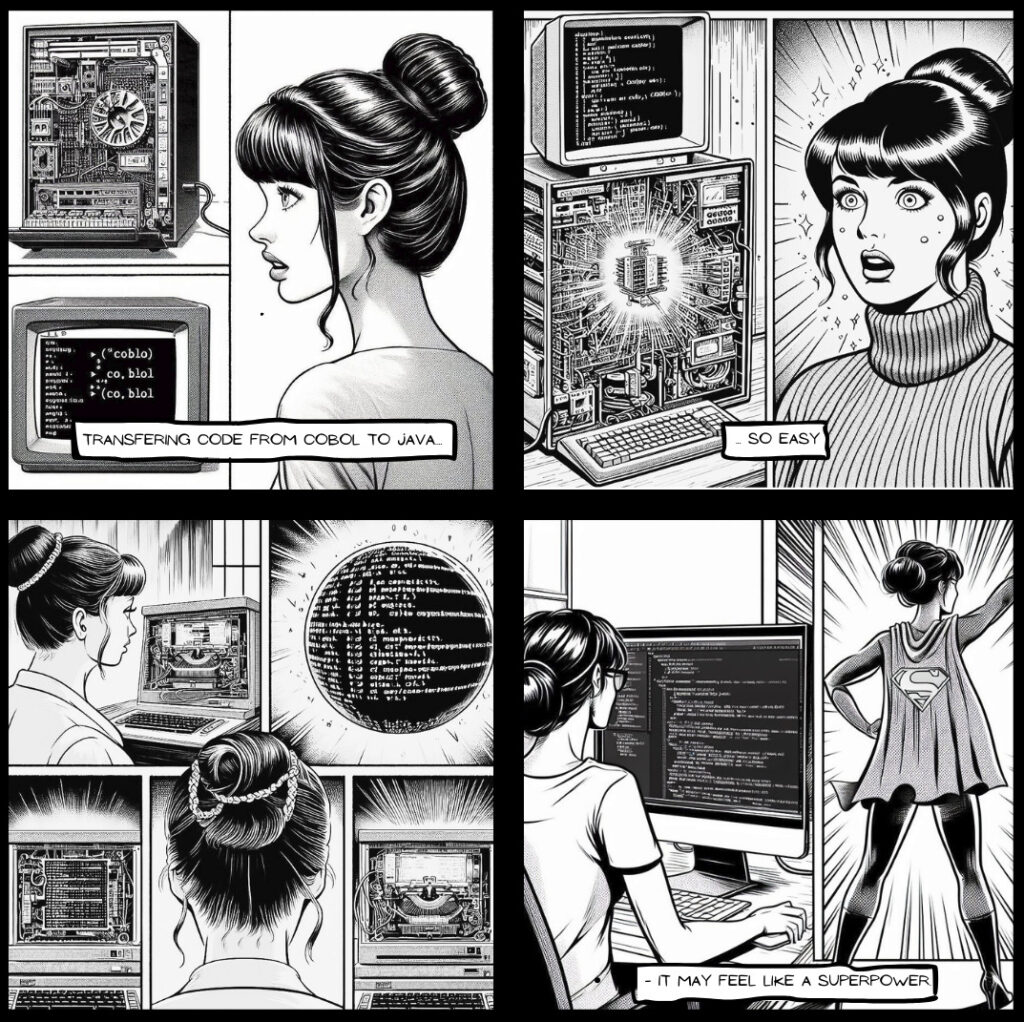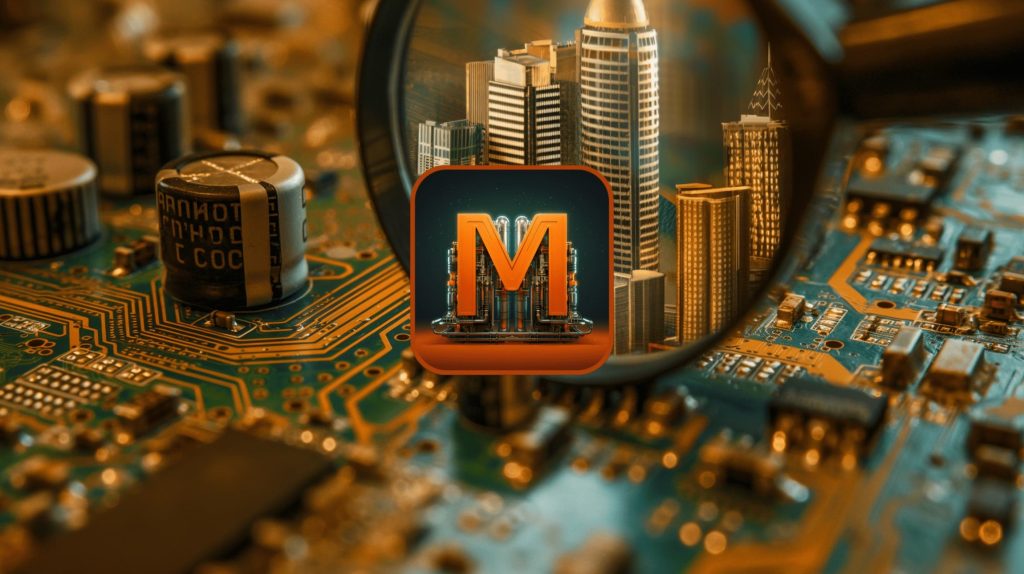Dear fellow mainframer,
I hope you didn’t get confused by our title, but we’ve just announced a new QED – the best biztech conference you can attend in 2024, and this year, our theme is inspired by playgrounds. If you are wondering why the play is essential in a mainframe environment: scroll down and you’ll get the answers.
Talking about playfulness, as it’s getting cold outside, I ordered a new toy, an indoor bike trainer that moves. It should arrive this weekend and I will start playing immediately!
Mainframe Application Modernization with Generative AI
When you think of mainframe modernization the biggest challenge has always been modernization of the applications. Most of those applications are developed using Cobol, PL/I , even assembler, the languages that young developers don’t fancy. Finally, there is a promising solution for that challenge!
Last week, I attended the workshop about IBM WatsonX Code Assistant for Z, a new tool based on generative AI that provides Cobol to Java conversion. The best part for me is the incremental approach – you can modernize your applications step-by-step, module-by-module, and keep on running Cobol and Java parts in parallel. I love the concept!
Basically, the process goes:
1. understand (existing code)
2. refactor (Cobol)
3. transform (to Java)

But don’t pop the champagne just yet. Software tools can be buggy or limited in their first version. I highly recommend doing a POC before diving into a real project, therefore, here is a link to a blog about how this advanced tool works. At CROZ, we’ve immediately set up a team of experts to start playing with new tools. However, we want to play with purpose.
We play to create value. We play to build trust. We play to prepare for the future. Stay tuned for the first impressions!
Is DevOps on Mainframe even a good idea?
Mainframe is one of the pillars of this industry, so there is a bit of controversy when a discussion about bringing DevOps on mainframe is started. I think there shouldn’t be such a stigma about that idea and here’s why.
- The skills gap is becoming an increasing problem for mainframe users worldwide. New generations of engineers are unfamiliar with old tools, and by introducing standard tools (GitLab, Ansible, and Nexus…) young developers will feel at home on the mainframe. Tobias Leicher brilliantly described this situation here.
- If you start using Java more intensively, for example, by using advanced migration tools from the previous point, a DevOps environment is almost a mandatory prerequisite. Of course, you can continue “the old way,” but I would not recommend it.
- Moreover, DevOps is not some clever idea or untested novelty brought by Gen Z. On the contrary, mainframe DevOps tools are a proven, stable, and high-quality solution. There is absolutely no reason for distrust because many users have already successfully established a new environment and have no problems.
If you are still a bit sceptical, you can listen to our team’s experiences and best practice recommendations here.

Managed Services vs Outsourcing
Mainframes play a vital role in the IT infrastructure of large organizations, supporting mission-critical functions like financial transactions and customer service. Lately, there has been a recurring issue in the industry because of the widening skills gap. Frequently used solutions are managed services and outsourcing. Choosing between outsourcing and managing mainframe services is a crucial decision, with each approach having its pros and cons.
Outsourcing involves contracting external providers for specific tasks, ranging from operations to security. While cost-efficient, it may limit control and flexibility. On the other hand, Managed Services offer a comprehensive approach where a managed services provider (MSP) takes on the overall management of the mainframe infrastructure, allowing organizations to focus on core activities.
CROZ offers a structured approach to Managed Services, covering infrastructure, processes, and personnel. The focus is on regular maintenance, process optimization, and integrating experienced professionals for expertise, while the emphasis is on security, including patch applications, certificate renewals, and compliance with standards like ISO27001. You can learn more about that here.
In conclusion, the decision between outsourcing and managed services is complex and depends on organizational needs. Careful consideration of factors discussed, such as operational focus, security, and disaster recovery, is crucial. Evaluating potential providers ensures organizations get optimal value for their investments.


